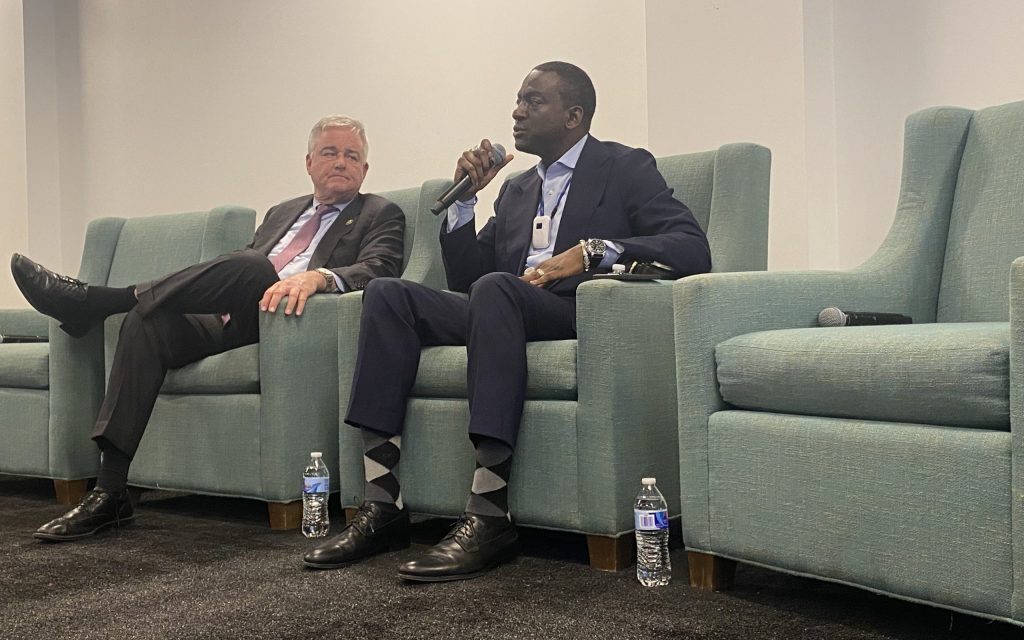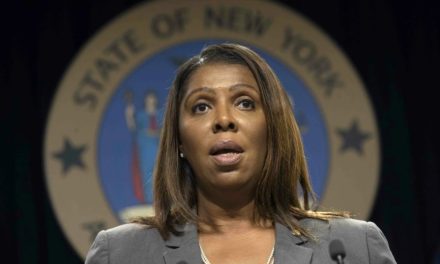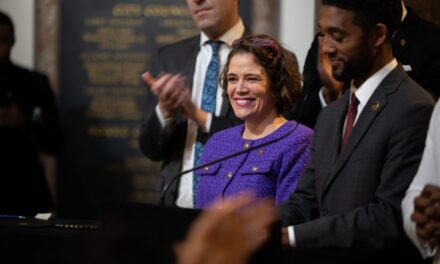By Tashi McQueen,
AFRO Political Writer,
tmcqueen@afro.com
Community members and activists gathered at Baltimore Unity Hall on Oct. 27 to participate in discussions on juvenile justice and the re-entry formerly incarcerated into American society and specifically in Baltimore.
Rep. David Trone (D-Md.-06), who is running for the U.S. Senate in 2024, led the conversation.
“If we participate in righteous collaboration, if we participate in the greater good of society, we get the opportunity to have a world where we can imagine what it will look like,” said Yusef Salaam of the Central Park Five. “Our success is staring at us as we look in the mirror, it’s us collaborating together to do the work to lift the mountain. That’s what this is.”
The Central Park Five is the designated name for the five Black and Hispanic teens who were falsely convicted of rape and murder in 1989 in New York. They have since been exonerated.
“I had to will myself to do the time, so that time did not do me. To be better, not bitter,” said Salaam.
Trone said societal issues need to be reframed so that the other side, other political parties, may understand how their concerns are similar.
“[People in] public service are not thinking long term,” said Trone. “You can find folks in Washington, by reaching across the aisle in spite of partisans. We need to reframe issues.”
Salaam celebrated Trone for his work in restorative justice.
“David Trone has hired 14,000 people,” said Salaam. “To me, that is one of the best walk the walk and talk the talk examples.”
Trone said he’s working with Fed-Ex, UPS, Target and J.P. Morgan to “ban the box.”
“We’ve got to ban the box for the whole country,” said Trone. “They can hire returning citizens and make our country and better place.”
According to the Baltimore City Office of Equity and Civil Rights, banning the box prevents employers from immediately denying an applicant before an offer of employment due to their criminal record.
“Second chances are so important,” said Trone.
Panelists of local Baltimore leaders spoke about existing barriers to fundamental change.
“Today’s conversation helped me know that we’ve got to get past these conversations and start doing the work,” said attendee Gwen Levy, formerly a formerly incarcerated community activist. “We got to make some of these ideas that we talked about happen, expand the ones that we know are working and move beyond the ones we know aren’t working.”
“There is no way you should have young kids or cities without proficiency in reading and math,” said Levy. “Then we wonder why we got to a high juvenile criminal rate. It’s the school-to-prison pipeline. We smooth out that first and all the rest will follow.”
Tashi McQueen is a Report For America corps member.
The post Trone leads juvenile justice and re-entry discussion in Baltimore appeared first on AFRO American Newspapers .











